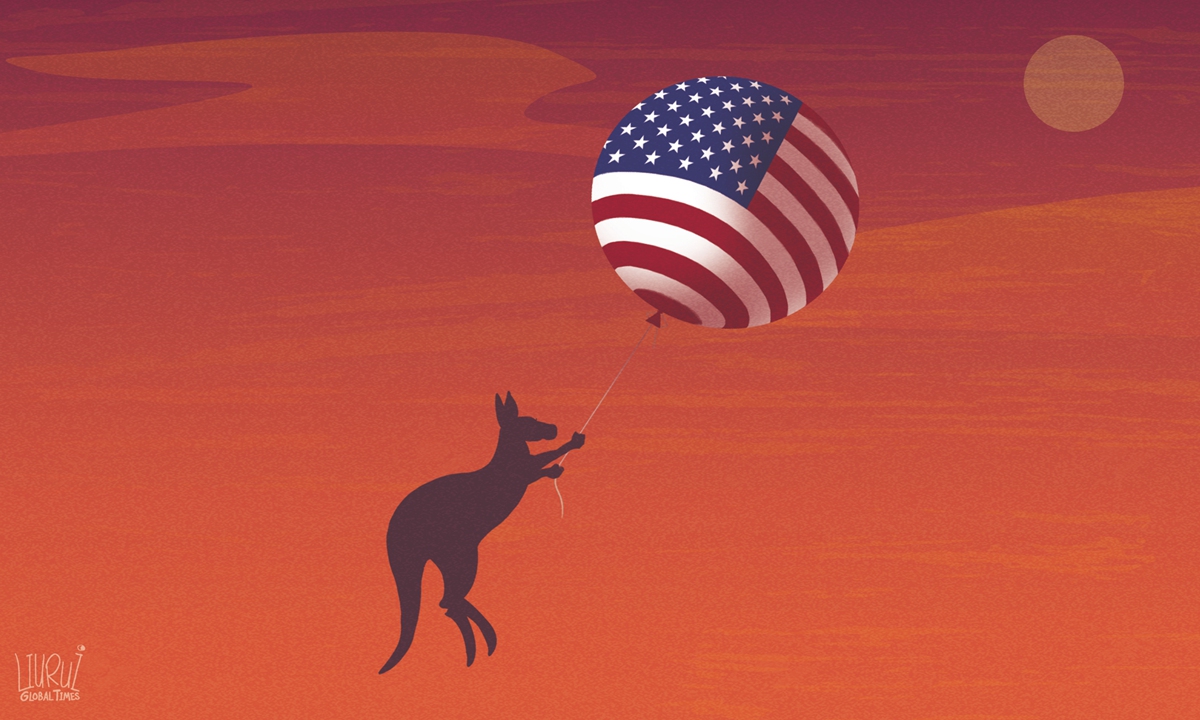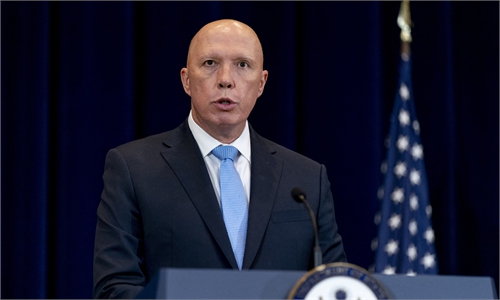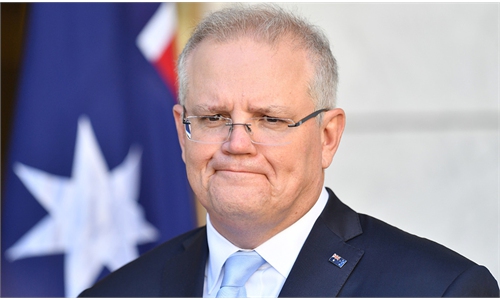A submissive Australia in no position to criticize India’s independent strategies on Ukraine crisis

Illustration: Liu Rui/GT
Click here to stay tuned with our live updates on Ukraine tensions.Some media outlets in Australia have been feverishly roused in recent weeks, stirring up discord during the ongoing military conflicts in Ukraine. They have been criticizing countries like India and Indonesia that have refused to follow the US-led West denouncement of Russia and call to impose sanctions. Instead, they called for diplomacy and dialogue as solutions to the crisis.
As a member of the Quadrilateral Security Dialogue (Quad), which has been pulled together and mobilized by the US as the axis of its treasured Indo-Pacific strategy, India is expected to synchronize and take its cues from Washington.
Canberra has been a loyal acolyte of Team USA, with constant unfailing dedication. The former Australian prime minister Malcolm Turnbull pledged to "join at the hip" with the US in defense and foreign affairs. His successor, Scott Morrison, boasted that "There is no deeper friendship than that which exists between Australia and the US… We see the world through the same eyes."
Indeed, Canberra has been supporting almost every initiative and strategy yielded from the White House for decades. It never missed out on a single war waged by the US, at the cost of Australian lives and Australian taxpayers' money. For Canberra, it is unimaginable that developing countries demonstrate their maturity and independence and stand up against the West's political pressures.
It is a universal truism that all sovereign countries are politically independent, with their own national interests to protect and promote. They have the unchallengeable right to make decisions and formulate their own international policy.
What's more, as a longstanding member of the non-alliance movement, New Delhi has never forsaken its own interests or strategic targets in order to serve Washington's hidden agenda.
The Biden administration's new version of Indo-Pacific Strategy repeatedly stresses its desire to engage India as a close partner in the regional cobweb of the US' strategic groupings, aimed at containing and deterring China's development. It deliberately tries to increase tensions between India and China by calling attention to border disputes.
The Modi government has not been as submissive as Canberra to Washington. A more coolheaded approach is at play in New Delhi with India's national interest and long-term strategic goals taking precedence. India has refrained from blindly joining the West-led chorus censuring Russia, and has instead adopted an independent diplomatic approach, much to the chagrin of many of Washington's vassal states.
There is something important for Australia to consider. Why is India making its own diplomatic decisions on an important international issue like the Ukraine crisis, while Australia continues to pledge its allegiance to Washington at the cost of its own national interest?
In psychology, there is a neurotic syndrome called Fear Of Missing Out, or FOMO, which often brings about stress and anxiety because the victim is always in apprehension of being unable to possess or achieve something good. Some people in Australia apparently need a psychiatrist's couch as they are constantly worried that they will be left behind by Washington. They pathetically believe that Australia should attach itself to the US hegemony to attain security, just as creeping vines have to coil around a sturdy tree trunk.
It still remains uncertain whether Canberra will attain true independence, or remain immature in a perpetual cocoon.
The author is president of the Chinese Association of Australian Studies and director of the Australian Studies Centre at East China Normal University. opinion@globaltimes.com.cn


